At face value, it would seem the documenting and maintaining patient medical records electronically should be more efficient and easier for physicians and providers. However, many medical practices are finding Electronic Health Record (EHR) solutions can be more of a burden than an asset. Physicians complain that they keep putting data into the EHR, but have trouble accessing it in a simple, insightful way. The inability to extract and exchange information among many of today’s often-outdated EMR/EHR systems and providers negatively disrupts workflow, adversely affects the quality of patient care, and creates destructive confusion and ambiguity. The wrong EHR solutions greatly contribute to provider burnout and dissatisfaction.
Uncomplicate the User Interface of EHRs
Busy and complicated user interfaces on some EHRs can make patient record documentation and medical charting a cumbersome task. It can be hard to find the right patient, match diagnostic reports, and make informed decisions for your patients. These complicated, confusing EHRs can cause more harm than good, increasing patient safety issues. Medical providers are demanding that EHRs should have an uncomplicated, yet intelligent user interface. They want physician designed and specialty focused interfaces and dashboards that improve overall user experience. They want solutions that are smart, savvy and simply designed.
Reduce Data Related Gaps in Care
In addition to simplifying the UI, physicians are frustrated by incomplete patient medical records and disconnected care teams. Without integration and improved interoperability, there may be gaps in patient care, duplicate orders, and critical contraindications. They need an innovative EHR platform that connects the care team, practice management and revenue cycle management across their healthcare enterprise. They need systems that talk to each other. Integrated and interoperable medical practice technology solutions and data sources offer greater productivity and efficiency levels, and most importantly better decision-making that lead to improved patient outcomes.
Increase Time for Patient Care and Decrease Documentation Time
Physicians and practitioners want to spend their time making the best clinical decisions for their patients and producing better outcomes and experience, managing a tedious documentation process. Medical practices need the right technology that better enables them to deliver the best healthcare to their patient population. They need a reinvented EHR that offers analytics and clinical decision support that is empowered with artificial intelligence.
Offer Specialty-specific Design and Functionality
Most EHRs are designed with a one size fits all methodology. There is limited flexibility and functionality for specialty-specific workflows and care plans. Pediatric, cardiology, or oncology practices need very different capabilities than the standard EHR designed mostly for primary care physician practices. Plus, larger enterprise practices may have varying needs that smaller medical practices. Physicians and practitioners need an EHR designed from their specialty and practice perspective. Templates and modules need to match the way they manage patient care within their specialty. Physician-constructed multi-specialty EHRs can accommodate varying medical specialties with customized functionality and an integrated platform to provide robust, reliable workflows.




